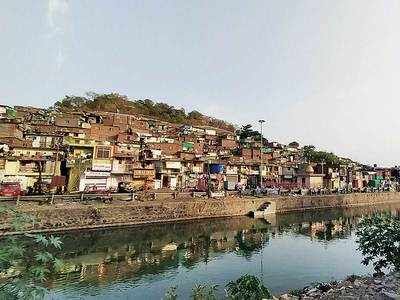In the unprecedented COVID-19 pandemic sweeping the nation, Pune has emerged as one of the cities hosting and unfortunately, large number of cases. And, of these, a major chunk has been reported out of the slums of the city. But having deployed significant resources and funding to handle the situation in these areas, Pune Municipal Corporation (PMC) is now looking at a more long term solution- the total eradication of slums altogether providing individual housing plus toilets to their residents, with a new take on the existing Slum Rehabilitation Authority (SRA) scheme. This, officials say, can be helpful to combat not just the ongoing pandemic, but also similar outbreaks in the future.
At the moment, PMC has noted over 8,062 COVID-19 positive cases since march, of which 80-85 per cent are from the worst-hit slums of Bhavani Peth, Mangalwar Peth, Tadiwala Road, Parvati Paytha, Janata Vasahat, Yerawada, Wadarwadi, Gokhale Nagar, Patil Estate, Ramtekdi, Bopodi, Ambedkar Vasahat and more. There are a total of 564 slums under PMC, including 353 notified and 211 un-notified ones.
Going forward, this is the root of issues that civic officials wish to focus on. They aim to put in place independent homes for slum dwellers with toilets that do not have to be shared en masse, irrespective of whether these houses are built by developers or the slum dwellers themselves via housing societies.
PMC chief Shekhar Gaikwad, who is helming this initiative, is developing various options, as each slum is unique and choices regarding the housing plan will need to be given to its denizens. “We have come up with options, keeping the public viewpoint in consideration. If we asked them to come up with plans for houses, they would proactively demand roads, individual toilets, parking and other facilities. A balance is important between what the administration can provide and the aspirations of the residents according to area as well,” said Gaikwad.
The ambitious plans mooted include the local body itself developing slums, rather than taking on a developer for SRA. Lands owned by PMC could be handed over to slum dwellers’ housing societies on lease or sale; another option is giving ownership of that specific property to slum dwellers to facilitate the housing process. Earlier, premiums were taken from slum residents for development, but PMC says it can now develop slums itself one by one, including the construction involved. Moreover, houses will be given to all slum dwellers, irrespective of whether they are authorized or unauthorized residents.
Said Gaikwad, “The entire concept will be ready in 8-10 days, after which I will put it before the PMC general body and standing committee. We have expended much money and resource to take on COVID-19 — after it is over, our citizens should not go back to the same filthy living conditions using common public toilets. There should be an end to this problem — a permanent one. We are also studying the expenses of this initiative and losses PMC will suffer from it.”
Welcoming PMC’s ambitious decision, public health expert Dr Subhash Salunkhe, who is chairman of the Maharashtra Communicable Diseases Prevention and Control Technical Committee, said, “If the local body develops such housing, it will lead to healthy living for tens of thousands who are currently at the risk of airborne and waterborne epidemics due to filthy surroundings, poor sanitation and hygiene. This has become a national phenomenon now — a majority of cases of COVID-19 are being found in slums across India. Investment in health is a positive step and providing such housing will lead to several benefits for citizens. It will decrease morbidity and mortality due to diseases. Homes with proper ventilation, light and sanitation would be of great help to fight this outbreak and any future ones.”





